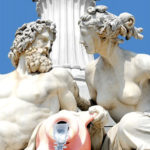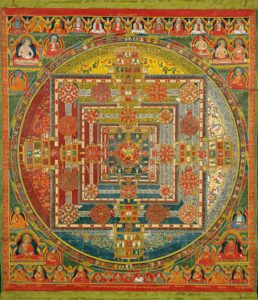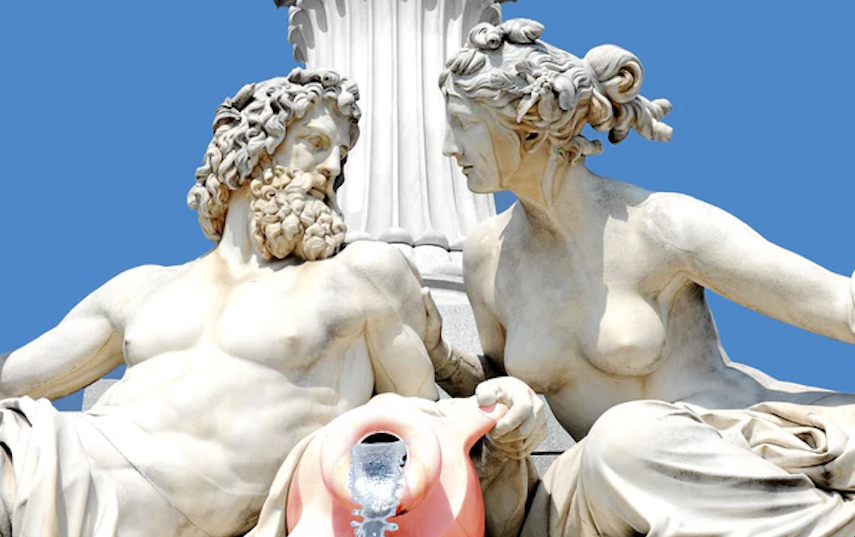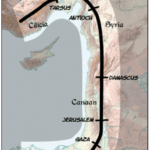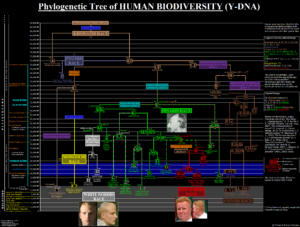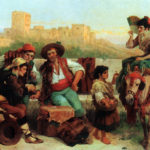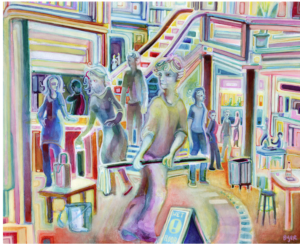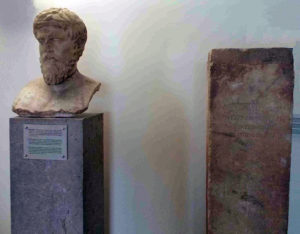Click here
Category: Eduardo Velasco
Evropa Soberana, backup 49
Click here
Evropa Soberana, backup 48
Click here
A Kālacakra Mandala
Translation of a single sentence of the article:
The Kālacakra, a Tibetan Buddhist tantric scripture with strong Hindu influences, states that when the world degenerates into a maelstrom of war and greed, out of Shambhala will emerge Kalki (‘white horse’, or ‘destroyer of filth’): a kind of messiah who will form an army and fight the demonic forces, killing by the millions the barbarians and the ‘thieves who have usurped the royal power’. Gathering all the Brahmins of the world, he would find a new race to populate the golden age to come.
Evropa Soberana, backup 47
Click here
Translation of a single paragraph:
These scenes are from Dhaka, the Bangladeshi capital, but they could very well be from Calcutta or any other overpopulated South Asian city. The human multiplication and insane overcrowding taking place in this region is very representative of a civilisation that can only be artificially sustained by grain, hydrocarbons, indebtedness, consumerism, pollution, miserable living conditions, slavery, racial vulgarisation and other dead ends of human evolution, grouped under the euphemistic label of ‘sustainable development’. This social picture suits high finance: when a majority becomes very poor, inevitably a minority becomes very rich.
Evropa Soberana, backup 46
Click here
Evropa Soberana, backup 45
Click here
Translation of a single paragraph:
What influence does the Levant have on the world? Will the future of humanity be decided in the Levant? Why were Cyprus, Crete, Rhodes, Sicily, Naples, Lebanon or Syria once so prosperous, whereas now they are beset by instability? Does the Levant have anything to do with the Silk Road? Why did Syrian President Bashar al-Assad claim in June 2011 that the Levant was no more and no less than ‘the centre of the world’? Why do the solar and straight signs here clash with the lunar, nocturnal and curved signs? To justify the eternal importance of this incomparable region, it is necessary, as always, to go back to the past. In this first part, we will review the history of the Levant, from a different point of view, up to the expulsion of the Napoleonic French from Egypt.
Evropa Soberana, backup 44
Evropa Soberana, backup 43
Click here
From this article, which is an index to all the articles published by Eduardo Velasco in his cancelled webzine ‘Evropa Soberana’, I would just like to translate a few words from the final section:
Do you believe that Spain and the Hispanic world have great potential, but that it is not being properly harnessed, and that Spain could play a brilliant role as the Atlantic sword of a continental empire?
It strikes me that Velasco, who understood so well the ravages of miscegenation in Western history, was won over by old-fashioned Hispanic nationalism: a nationalism that doesn’t take the race factor into due consideration. My harsh views on mestizaje in Latin America can be found in El Grial. Those who wish to read only a short post, of 17 July 2015, click here.
Evropa Soberana, backup 42
Click here
Translation of a single paragraph:
The rise of East Asia and China as a superpower is a direct consequence of globalisation and the consumerist and materialistic religion established in the new cathedrals of the West: the shopping malls. The culprits: the financial castes of London, New York and Frankfurt, and their frontmen in the rest of the world.
Evropa Soberana, backup 41
Click here
Portrait of Plutarch, and a hermaic stele
at the Delphi Archaeological Museum.
Translation of some of the article’s quotes, ‘Los beneficios del ayuno’ (The benefits of fasting):
‘Everyone has a physician within; we just have to let him do his work. The natural healing energy present in each of us is the greatest force for healing. Our food should be our medicine. Our medicine should be our food. But to eat when you are sick is to feed your sickness.’ —Hippocrates.
‘Instead of using medicine, better fast today.’ —Plutarch.
‘Fasting is the first principle of medicine.’ —Mevlana Rumi, 1207-1273, Persian poet and founder of the Turkish Mevleví brotherhood of Sufism.
‘Fasting is the greatest remedy: the inner physician. Nature cures, the physician helps.’ —Philip Paracelsus, Swiss physician and one of the three fathers of Western medicine.
